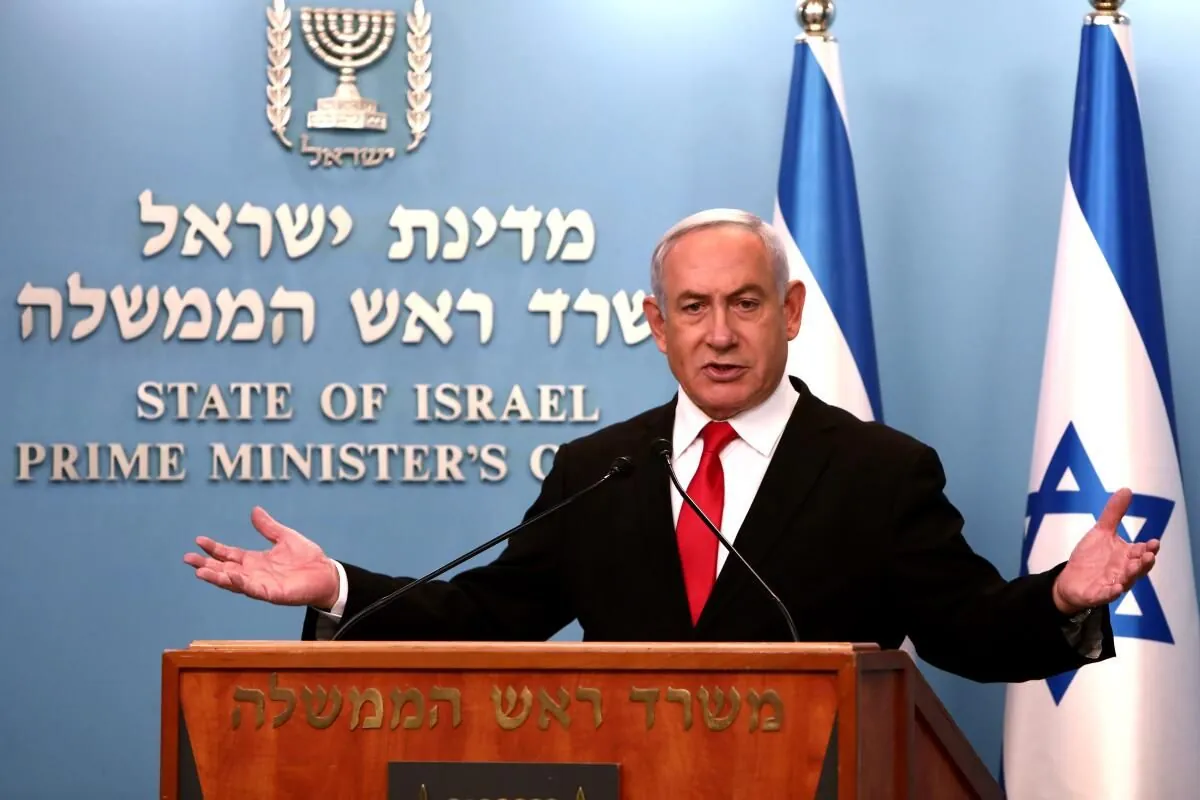Netanyahu's Political Revival Amid Hezbollah Leader's Assassination
Israeli PM Netanyahu sees political boost after Hezbollah leader's death, but faces ongoing challenges. Recent military successes contrast with economic woes and tensions with defense establishment.

The recent assassination of Hassan Nasrallah, Hezbollah's leader, has provided a significant political boost to Israeli Prime Minister Benjamin Netanyahu. This event marks a turning point in what has been a challenging year for the Israeli leader, following the Hamas attack on October 7, 2023.
Netanyahu, who has served as Prime Minister for a total of 15 years across multiple terms, has been grappling with public dissatisfaction and criticism of his handling of the ongoing conflicts with Hamas and Hezbollah. The assassination, which occurred on September 27, 2024, has allowed him to reassert his image as a strong security leader.
However, the Prime Minister's relationship with the Israel Defense Forces (IDF) remains strained. The tension stems from the judicial reform attempts in January 2023, which were perceived as an effort to subordinate various state institutions to political control. This led to protests, including from members of elite military units.

Despite recent military successes, Netanyahu's government faces significant economic challenges. Israel's economy, known for its advanced high-tech sector, shrank by 0.2% in the second quarter of 2024. Credit rating agencies Moody's and S&P have downgraded Israel's rating, citing geopolitical risks and deteriorating fiscal metrics.
The political landscape remains uncertain. While the assassination of Nasrallah has boosted Netanyahu's Likud party in recent polls, the overall balance of power between the coalition and opposition remains unchanged. The addition of Gideon Sa'ar's New Hope party to the coalition on September 29, 2024, has strengthened the government's parliamentary majority to 68 seats in the 120-seat Knesset.
"I came to the conclusion that the powerful blows that the IDF has been landing on Hezbollah in recent days were not enough. … Therefore, I gave the directive."
This statement reflects Netanyahu's attempt to claim credit for the military success, despite the operation being the result of 16 years of intelligence work, much of which occurred under previous administrations.
As Israel navigates these complex political and security challenges, the next scheduled election in October 2026 looms on the horizon. The coming months will be crucial in determining whether Netanyahu's recent political revival can be sustained in the face of ongoing economic difficulties and unresolved conflicts.


































